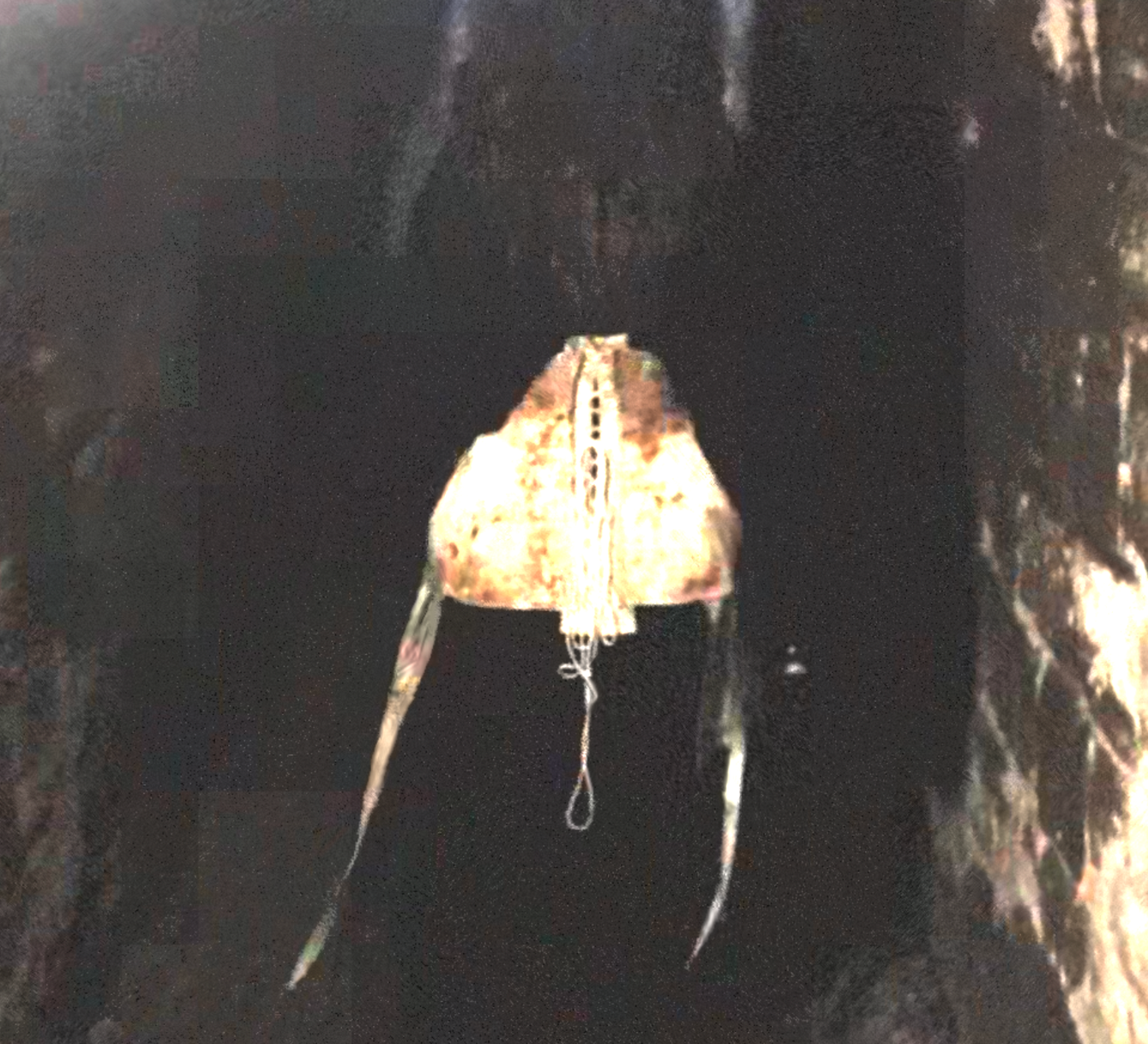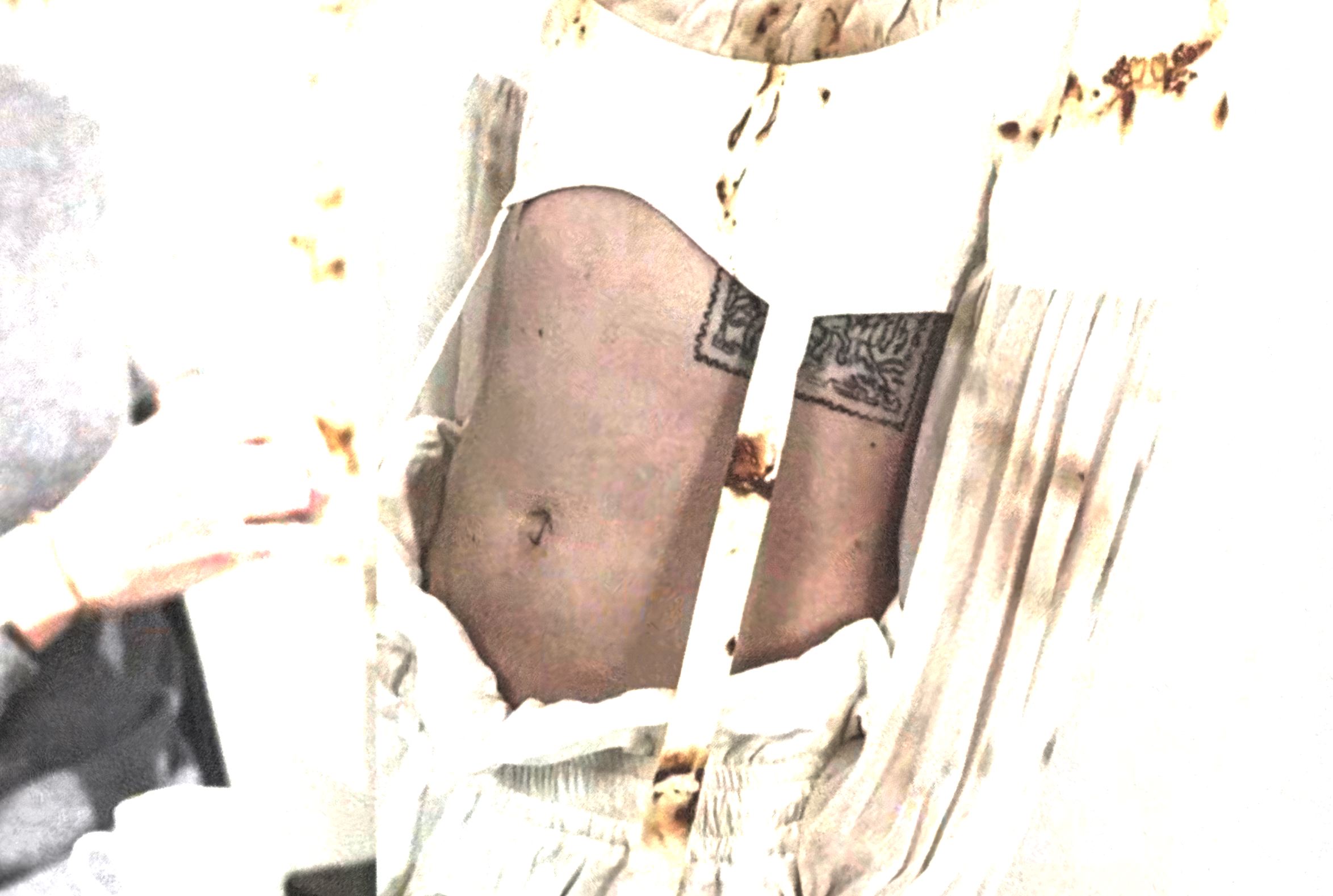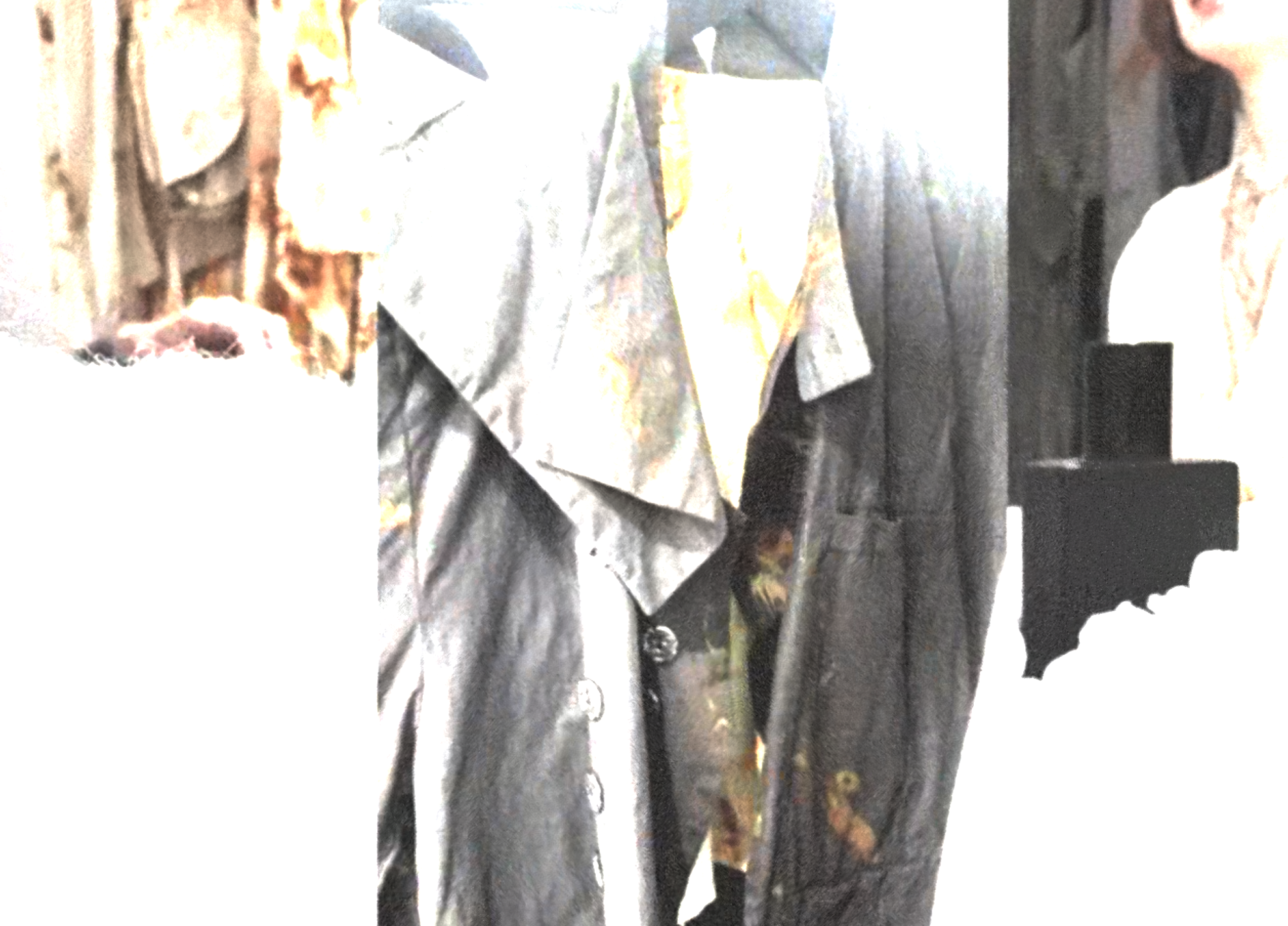Paris/ A collaboration between Odiosa and a scientist.


March 7, 2025. Paris Fashion Week.
The first collection by Odiosa: They Were Eaten by White Butterflies.
Interview with a scientist — an epidemiologist and professor at a major university. Personal details are withheld for security reasons.
We express our sincere gratitude to those who have chosen to share their experiences with us.
A Note of Gratitude
This conversation marks the beginning of something rare for us.
It is the first dialogue of its kind, a collaboration between Odiosa and a scientist, not for the sake of spectacle, but for the shared work of bringing invisible structures to light. We are deeply grateful to Professor X for their generosity, precision, and vulnerability.
This is not an interview. It is an encounter: a mutual, respectful passage into difficult terrain: ethics, protection, childhood, mental health, and the delicate border where science meets art.
In accordance with prior agreements and out of respect for the emotional sensitivity of the topics discussed, all voices in this recording have been altered. This measure was taken to ensure privacy and non-disclosure, while allowing the core of the exchange to remain intact.
At Odiosa, we do not seek to illustrate knowledge. We seek to stand beside it, to reflect, distort, and deepen it. To use our language: fabric, voice, gesture — to extend care and clarity where words alone may falter.
We are learning how to speak with other disciplines, with other minds. And this first act, though raw and imperfect, is something we cherish.
Thank you for witnessing it.
— Odiosa Guild
Berlin · Paris · Barcelona · Tbilisi

Voices have been altered; the interview has been transcribed with the purpose of data protection and in accordance with the personal wishes of the participants, due to the emotional sensitivity and depth of this encounter
Transcription
Creative Director:
We often say that fabric carries memory - it creases, tears, resists, transforms. Just like people. I guess that's part of why I wanted to talk with you. There's something in the way we both work with structure, pain, and resilience, even if from different fields. Could you start by sharing what exactly social epidemiology means?
Prof: Epidemiology is a big field - it typically deals with viruses, bacteria, and things like that. But 1 study social epidemiology, which is about how our ways of living affect our health. It's not about blood - it's about behaviors and exposure: smoking, drinking, drug use, psychoactive substances. Essentially, I study people's lives. And my particular focus is on mental health.
Creative Director: That already feels deeply connected. I'm thinking about how many stories we carry in our bodies and habits. You mentioned off the record your focus is also on childhood - could you say more about that?
Prof: Yes - I specialize in childhood and mental health, especially as they relate to addiction. I look at how addictions impact mental health and how mental health issues can lead to addiction. It's a complex interplay, often rooted in very early experiences.
Creative Director: That's something I feel strongly about, too. It actually ties to the name of the brand - Odiosa. It's about odious things, or more precisely, people and realities that society usually rejects. And you can see it in the clothes - they have structure, but to get there, they had to suffer. They've been shaped, stretched, sometimes distressed. And I feel the same way about people. Everyone around me is precious, but many carry difficult, layered biographies.The goal of the brand is to support those who've lived through such experiences - not by smoothing them over, but by honoring them. Every person is complex, like a piece of fabric with a unique design, born with certain qualities, then altered by experience - dye, pressure, abrasion. And yet, it can end up beautiful. It's not that suffering makes you better, but suffering does have its place.
Prof: Yeah. Okay, it's difficult to express here. Because as scientists, we would like to understand how mental health is affected by consummation. And how consummation affects mental health. But it's not easy. If you take into consideration that science is pure science. And numbers. You understand the reason. But human being is not only numbers. It's also brain, brain, experience. How you were born. How you grew up. Your education. Everything. How you suffered. So, yeah. There is a part of something unreal. So I didn't tell you. But I'm also a teacher. Anthropology teacher. So I learned anthropology first. So medical anthropology. So it's really linked with art. As we learned anatomy at university. From drawing. In the past. So my father was a doctor. And I remember his books. When he learned at university. It was like 70 years ago. And I remember when I was a kid. He showed me the books. And it was drawing. Bodies and things. And it was art. But right now we don't learn like that. So we lose something here. But we try to connect more with other things. Anthropology especially. For example, I have a lecture. I try to introduce the students with diversity. Because as a doctor, you understand only numbers. You understand only disease and what to do. But people are so different. You cannot treat everybody the same. So you need to understand diversity.
Creative Director: So what concept or idea in your field do you think is misunderstood or not seen?
Prof: Well, yeah, I remember this question. So to be honest, I read your question like days ago and I thought about it, but I didn't like it. The point, I think, in my field, which everybody understands, understand it, but it's not a good understanding. In my opinion, it's ethics. Ethics. Which is the main point of research in France. I hope so. But yeah, people misunderstand this point. Like, in the central point of every research project, it should be ethics. You remember when I write here the paper about datas, what you will do with datas, and it should be super clear, super clean from the start. Perfect people who will accept to participate in your project. So yeah, the point is this, but not everybody understands in the same way and not everybody wants to understand in the same way. Like some scientists, they are pushers, and they prefer the project than people. So, it's a topic here in France. I'm working with the health ministry on this. I have a position there, so yeah. This is something really important, but it's the only thing really important for me here, like protecting people with the project.
Creative Director: That makes a lot of sense. Especially when it comes to children. You've mentioned childhood a few times - it's a difficult topic. I think about my personal experience, about orphans. I don't just think of those without parents. Sometimes people have parents but never feel any connection to them. I had a mother and a father, technically. But I never felt their presence. I never experienced that sense of parental figures. And where is this meaning of affection, it's so difficult, it's about ethics as well. Protection, same story. Love is, on my vision it's quite disconnected. Like you can love your child but not protect him. And unconsciously you don't feel that you don't protect them. You have the feeling that you protect them, but they are not protected at all. And who could really decide what are the borders.
Prof: Yes, I agree. That's emotionally heavy. To be honest I don't know, I'm giving science points. And how is it in English, not solutions but advising for the political things. But I'm not deciding. That's where science should be, giving proofs, strong proofs. That here if you do this and if 10 parents do this or 100 or 1000, at the end it will be the same, the child is not protected. So it's a strong proof, the line is here but I'm not deciding anything. And this is the same with science, art—in my brain there is no borders. It's the same story, linked, everything is linked. Numbers, what we are talking here is a kind of science you are making. Audio, you can use it as a science thing. If you do the same questions with 20 people asking the same questions, you will have probably different answers but some common points. And you will make a conclusion here, it's science. About art, about philosophy, about everything. I think there is no borders, but in protecting, in ethics—this is for me somewhere we should have borders. Protecting people. And in this world especially, you can see that the borders are most of the time not really respected.
So, when you go on this way in epidemiology, you understand that you will close the numbers book and open the social books. It’s not a thing. And when you start talking with people, it’s always the same. With the story of everything. And most of the time, the people that you meet—that I meet—that have kind of mental health disease or things—are artists.
СReat D: That’s the thing that I wanted to ask—is the artist’s way of thinking, could be determinate like a disease as well? Because it’s so close. For the scientist, this is named mental disease. Or, as the point of view of the artist, it’s named art, you know?
Scientist: So if you put yourself in the middle, like I’m trying to do, it’s a nonsense anywhere, you know? Like, you’re super creative. You have your own vision of the world. And is it a sickness? If it makes you bad—yeah, if you don’t feel good—it should be a sickness sometimes. But most of the time, you’re happy on your way and you don’t care.
Creative Director: It’s interesting thing. Because many of artists could explain their passion like something they could not resist. Like a burden. For me, it’s same. I’m learning to be happy with this thing. And I’m learning to be joyful and to live my joyful life. But from the very beginning of my life, there was something that I could not just resist to do. So I need to do it every time. So if I’m not drawing one day, I feel bad. And it’s like something—some biology process. And I feel it. Not just part of my psych. But the core.
Prof: But who said that? Like you were born there, you don’t feel comfortable there in this body, in this mental behaviour. Move where you feel comfortable first. And choose not to choose. Like choose yourself. It’s not a scientific way.So we are close to this “norma.” So—what is norma for you? How could you use it like an instrument, if you could? Because for me, as I’m from afar, I could think about this science, of course. I know that people are so different. And their approach could be different. Many things are connected with the passion, as you mentioned. When the subject started being much more—much more important than the people. It’s a dangerous thing. Because the object is the people—every time. It’s a delusional thing when you think that object is outside. Outside. Because it’s always outside.
Odiosa: So—but maybe there are really some—some normas or something that you could use as an instrument. Not to go out of the way. So to control. Somehow to control. The ethic as well. Or the research.
Scientist: The question is more for you here—what is your vision of ethics with your brand?This is like—science gave answers for ethics. My point is that I’m working with child, because they are fragile and they are not able to protect themselves. So science should protect them. Some parents are not able to protect them. So science should protect them. Adults—they can protect themselves. Sometimes you are not able to speak. In this society, you don’t feel good. But you are able to take your responsibility. To learn, to travel, to understand. But child—no. This is why ethics is important for me. But for you—what is the ethics point here? Who do you want to project? People? Doing yourself? You do it yourself?
Who do this?
Odiosa: I’m a designer. So I’m an artist more. The conceptualist, of course. And I could—but the first answer is about craftsmanship. And the first thing in my project is—my treasure is the people whom I work with. It’s a rare specialist and people with their passion.
That's why our Manifesto was born - almost unintentionally. It started with my siblings. I was trying to guide them through a really hostile environment. To help them survive. Later I realized that this guidance wasn't just for them - it was a kind of toolkit for anyone going through something similar. And in a way, it became a foundational text for Odiosa - a way of protecting what we call our Creature.
Prof: Your ethics are very clear - you create your Creature, and you protect it. You protect the people who make the clothes, who inspire and are inspired by the brand. You give visibility, and you offer a way to tell stories. That's protection, too.
Creative Director: Exactly. That's what we see as our responsibility. To build community, to make it visible, to shed light on the people and experiences that shaped us.
Prof: Then I'd say - you're acting like a scientist. We're doing the same thing, really. We takethings that are in the dark and bring them into the light. Your art is about people. About sharing stories. It's behavioral, observational - and it creates a kind of living record.
